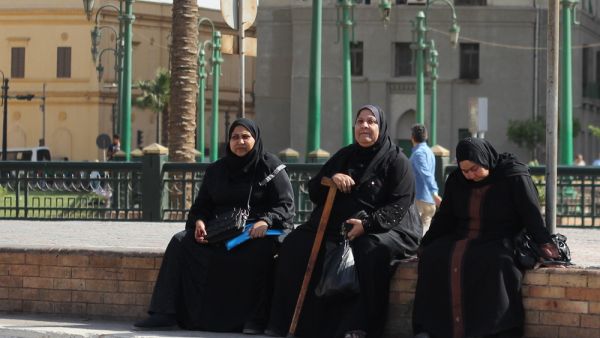- An estimated 60 percent of Egyptian women are denied of their right to inheritance
- Approximately 95 percent of that figure is believed to be in Upper Egypt where male dominance is the norm
- The government approved a draft law in 2016 stating that deprivation from inheritance is punishable by six months in prison, but the parliament has yet to pass the bill
- Egyptian courts receive about 144,000 cases annually related to disputes over inheritances, mainly among members of the same family
Nadia Hassan should be a millionaire. However, when her son needed a life-saving heart operation, she had to sell all her jewelry to pay for it.
“My father died in 2007, leaving behind seven feddans [acres, 2.8 hectares] and three apartment blocks in Alexandria,” says Nadia, a 54-year-old schoolteacher.
“Since my father’s death, my brothers have refused to give me my inheritance share, saying that women do not have the right to inheritance,” she told Gulf News.
“Every now and then, they gave me some money, telling me that I should be satisfied with this. I asked some relatives to mediate with my brothers and try to convince them to give me the inheritance share specified by the Sharia. But the mediators failed to make any progress. So, five years ago, I took my case to the court. So far, there has been no ruling,” adds the mother of three, whose husband died last year.
Nadia is one of the millions of Egyptian women who face difficulty in securing their portions of inheritance. This occurs mainly in the countryside where women tend to have less rights.
“In my village, a common belief is that women do not have the right to inheritance,” says Radwa Salah, a 27-year-old housewife living in the Delta province of Sharqia.
Since the death of her mother some years ago, her maternal uncles have refused to give her and her younger sister the share of the vast tracts of farmland left behind by their grandfather.
- Egypt's New Population of 104 Million is Draining Their Economy
- Homophobia in Egypt Sees Mashrou' Leila Attacked, Possibly Banned
“On occasions such as Eid Al Fitr and Al Adha [Islam’s two holiest festivals], they bring us some gifts, which they think are a fair compensation for inheritance,” says Radwa.
“We cannot go to court because this is considered socially disgraceful and also because it usually takes courts long years to rule on such cases,” she argues.
More than 60 percent of Egypt’s women are estimated to have been denied their inheritance shares, according to independent studies.
Around 95 percent of that figure is thought to be in Upper Egypt, where male dominance reigns.
Salwa, a native of Upper Egypt, is one of these women.
“My husband used to work as a teacher in Saudi Arabia and sent money to his brothers in Upper Egypt to buy land in his name. They did, but after his death in 1999, I discovered that they registered the land in their names,” says Salwa, a mother of four living in Cairo.
“When I asked them to give us our lawful right, they denied they owe us anything. They threatened my family with trouble if I opened my mouth,” adds Salwa, who has declined to give her full name for fear of reprisal from her brothers-in-laws.
Egyptian courts hear annually about 144,000 cases related to disputes over inheritances, mainly among members of the same family, according to a recent government study.
- Suddenly Legal: How Saudi Women Driving Stopped Being Haram Overnight
- UAE Psychologist Will Help Women Accept Being Second Wives
Last year, the government approved a draft law making deprivation from inheritance an offense punishable by six months in prison.
The parliament has yet to pass the bill to become a law.
In recent weeks, the plight of Egyptian women where inheritance is concerned has been thrust into focus after Tunisian President Beji Qaid Al Sebsi proposed equal inheritance rights for women in his country.
“Such a call is hard to be implemented in Egypt, which is basically a Salafist [ultra-conservative] country,” says Eman Beibers, a women rights advocate.
“All what we demand is to apply the Sharia law related to women’s inheritance rights,” Beibers told Gulf News.
According to her, there are no specific figures about the numbers of Egyptian women who have not received their inheritance shares in the mostly Muslim country.
“This is because women’s names are not usually mentioned in inheritance papers,” Beibers, the chairperson of the Association for the Development and Enhancement of Women, says.
“The women who dare to file inheritance lawsuits at courts risk antagonizing their families”, Beibers adds, “even though these women may wait for several years before a court verdict is delivered. And even if they get a ruling in their favor, they face a bigger problem in executing this ruling.”
This article has been adapted from its original source.








